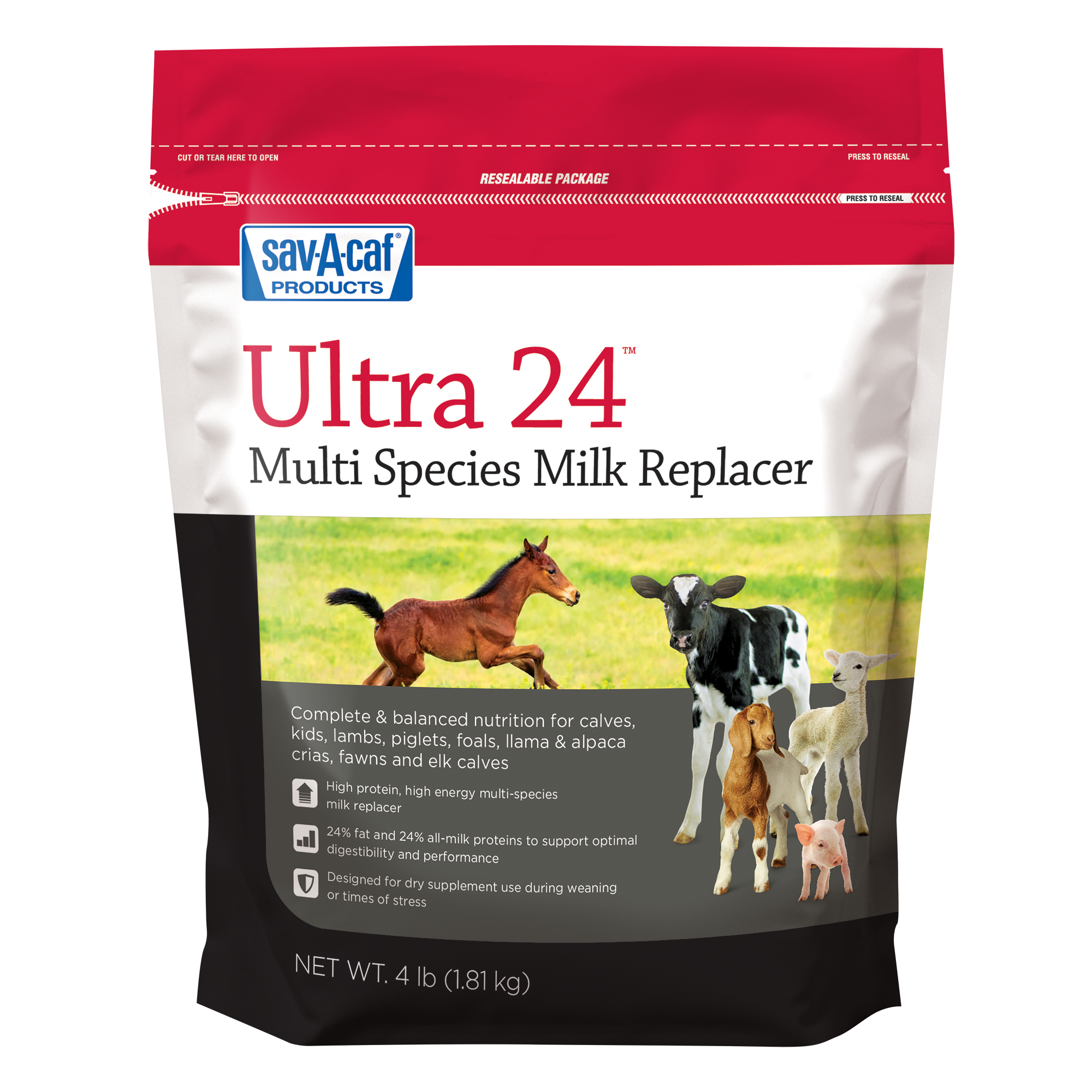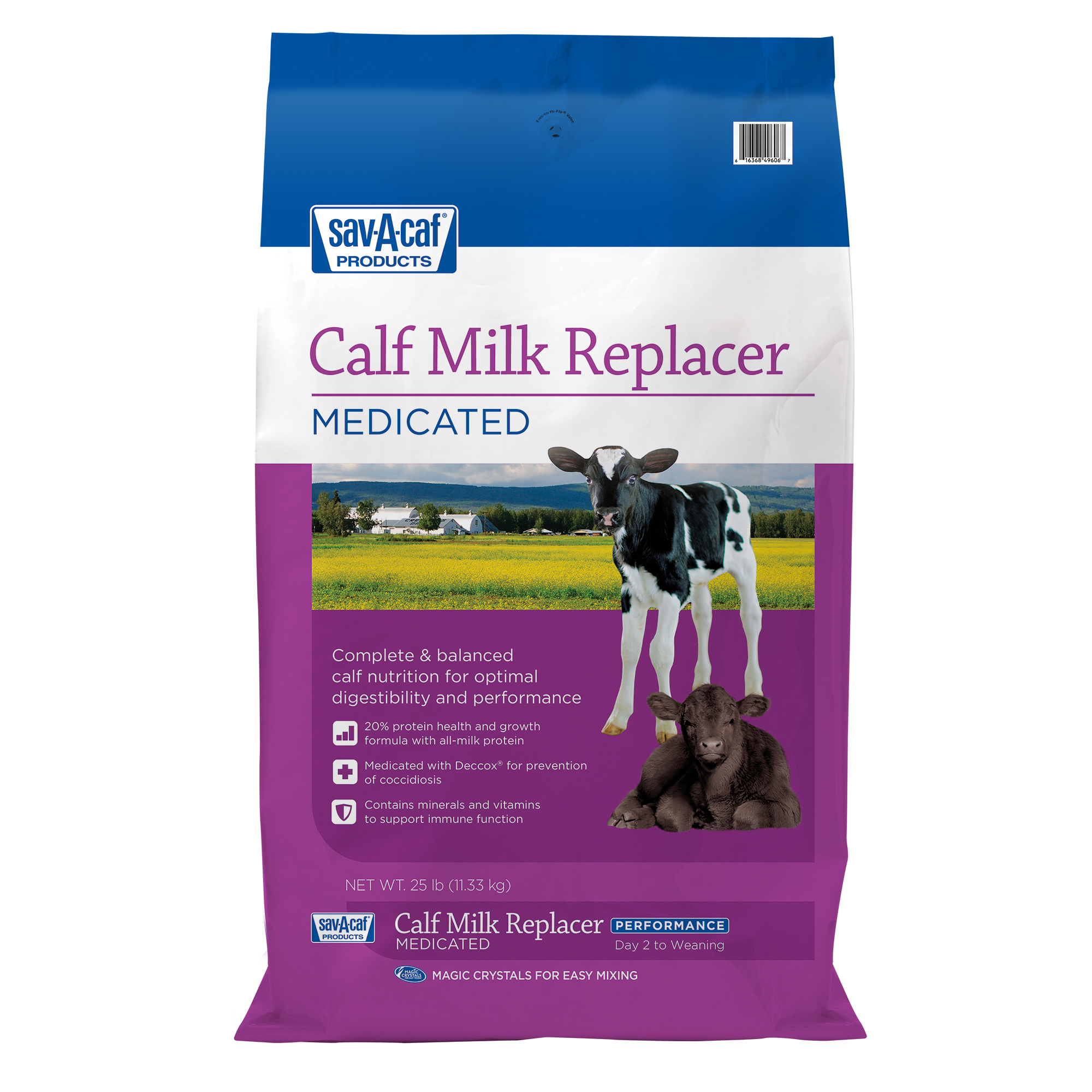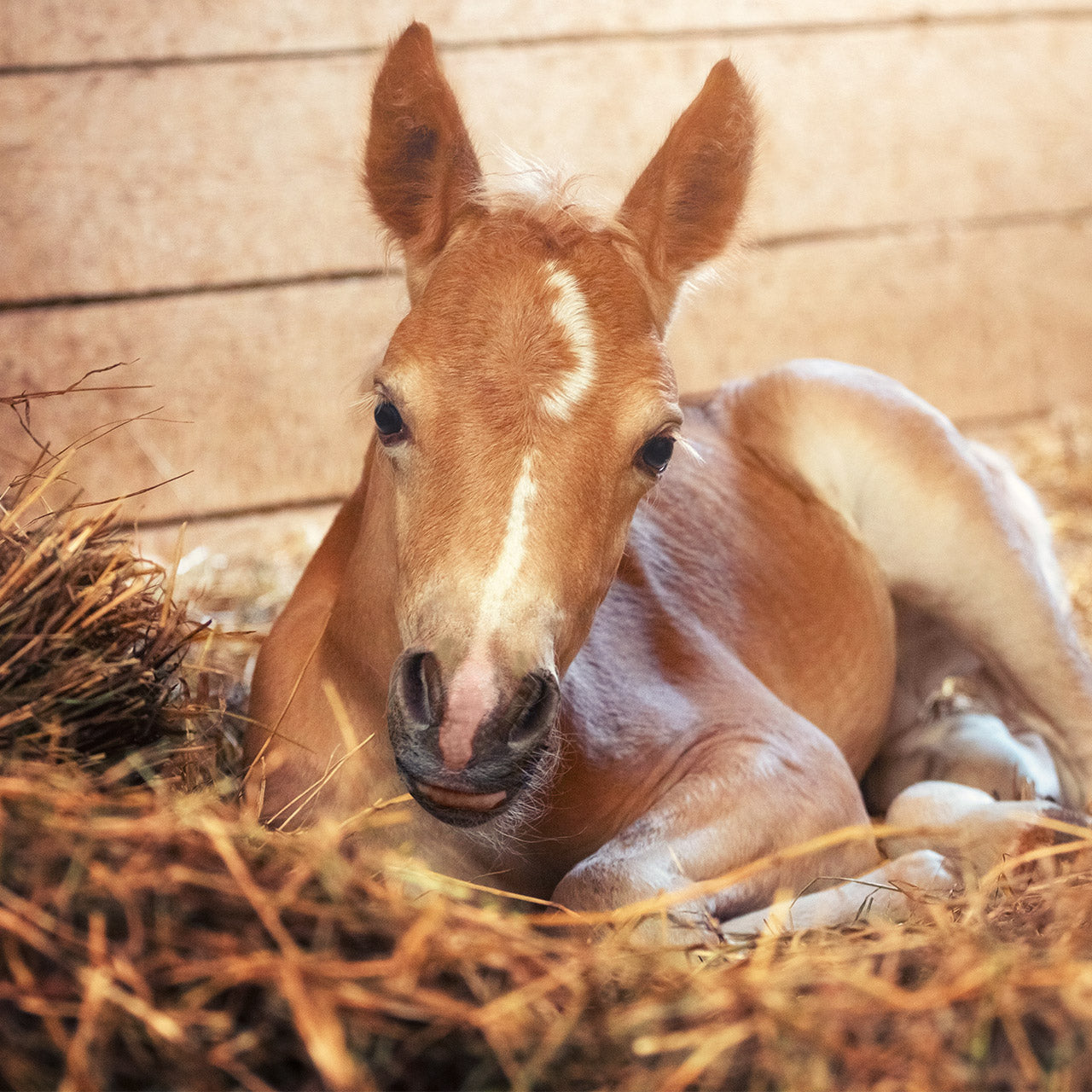
3 Tips to keep your new foal healthy
Once your newborn foal enters the world, their health and nutrition become top priorities. Knowing how to properly feed your foal can help keep them from falling ill. Follow these tips to give your foal the nutrition they need to stay healthy and prevent illness.
1. Follow Mixing Instructions
When bottle feeding foals, mixing milk replacer formula properly and following package instructions is very important. To be the most accurate, measure the powder by weight with a scale instead of by volume with a scoop or cup. If you are mixing large batches for multiple foals, add the powder before you’ve added all the warm water, then add enough water to bring to volume. You will want the temperature of your water to be around 115-120 degrees Fahrenheit. These are important details that will allow the mixture to achieve the intended nutrient content. Always mix until the powder is fully dissolved.
If the temperature of the milk replacer is near the foal’s body temperature, about 101 degrees Fahrenheit, they will consume it more readily when bottle feeding. However, you still want to make sure you follow the mixing and water temperature instructions on the package of the colostrum or milk replacer product you are feeding as the recommended mixing temperature may vary my product formulation.
2. Keep it Clean
Make sure your equipment is properly sanitized and maintained. Bacteria can grow very quickly on feeding equipment, and cleanliness of these things is key to your foal’s health. Wash your bottles and nipples in hot, soapy water and rinse them well after every feeding. Allow your equipment to fully dry between feedings because moisture creates an optimal breeding ground for bacteria. Lastly, check your feeding equipment often for any damage that could lead to over-consumption or faster-than-usual feedings to prevent digestive upset.
3. Be Prepared
Even the best cared for foals will occasionally still fall ill. A common condition to look out for is scours or diarrhea. If a foal does develop scours, it’s important to make sure they consume enough nutrients and stay hydrated. Help them reverse the fluid and electrolyte loss by feeding them an electrolyte supplement. This should be fed in addition to their normal diet because electrolyte supplements do not contain all the nutrients of milk replacer. It can also be a good idea to feed them additional calories to help them fight off the infection or illness that is causing the scours.
Monitor your foal closely during this time. If their scours does not clear up in a few days, or if it is accompanied by droopy ears, a cough, nasal discharge or fever of over 101.5 degrees Fahrenheit, it could be a sign they have pneumonia or neonatal septicemia, a serious blood infection. Your veterinarian will be the best source of information and advice for caring for sick foals, so consult them immediately for proper diagnosis and treatment.
Find more foal care and nutrition and follow My Farm Journey on Facebook and Instagram for additional insights.
Find Solutions for Your Animals
-
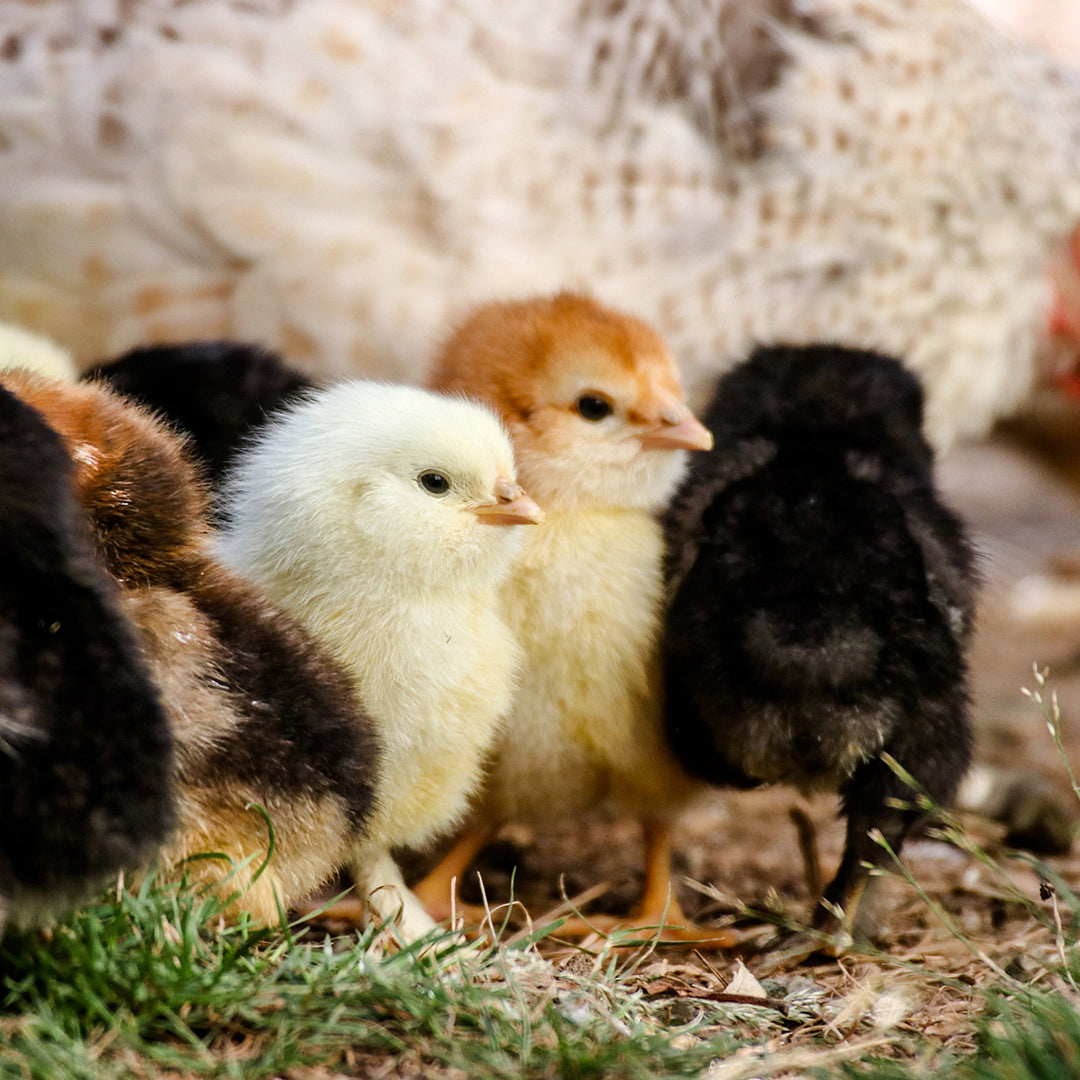
Whether housed in a coop or free ranging on your farm, your birds are exposed to multiple threats every day that could cause illness or impact their well-being. Now there’s a way to be more proactive with regular support for...
-
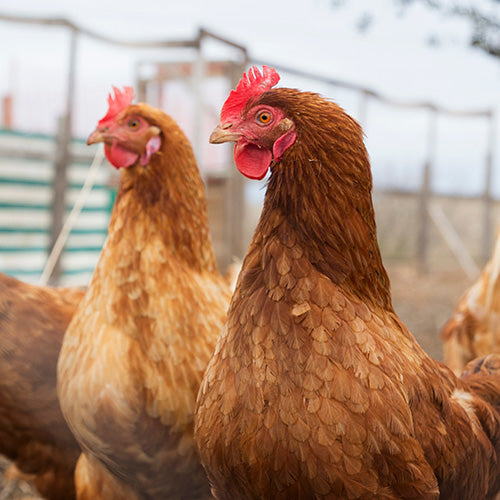
You’ve raised your chicks to adulthood and now they’re fully feathered hens. Way to go! Now, you get to enjoy their eggs and companionship for years to come. To maximize their life, support their production potential and kee...

